Environmental Report 2013
JAE Group Forest
The JAE Group Forest was established as a symbol of the group's environmental policies in order to improve environmental awareness by providing experiences in forest preservation for group employees, including the protection of the Okutama forest and its watershed.
Some 3,500 trees were planted there including some that provide beautiful seasonal color such as Prunus jamasakura (Mountain Cherries), Acer mono (Painted Maple), and Magnolia kobus, and others that are native to Okutama forest and provide food for the animals that live there, including Quercus serrata, Japanese zelkova, Japanese horse chestnut, Japanese walnut, and Japanese cypress. This is expected not only to protect the forest, but also to help preserve the biodiversity there.
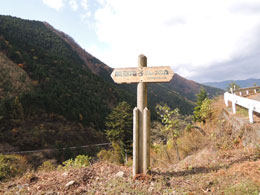
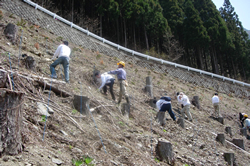
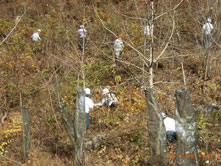
Nine years have passed since the inauguration of the JAE Group Forest, and the trees planted by the employees have grown from around 2 meters to 3 meters today. In early spring, Magnolia kobus and Japanese cherry produce flowers, while in fall, a certain amount of autumn color can already be enjoyed. As the trees grow, other plants and birds have begun to appear.
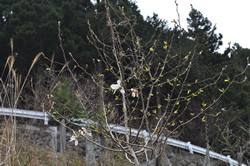
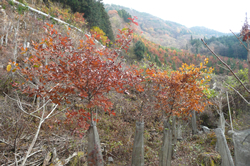
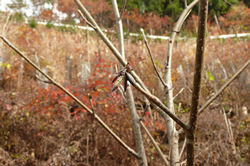
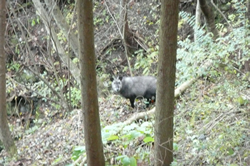
The JAE Group Forest will contribute to the maintenance and recovery of biodiversity through not only business activities, but also activities that contribute locally, including land/greening management and groundwater replenishment. The forest also functions as a symbol of the Group's environmental commitment.
Overview of JAE Group Forest
| Location | Aza Osawairi, Hikawa, Okutama-machi |
|---|---|
| Area | 1.33ha |
| Overview | •A third-party profit-sharing afforestation agreement between the JAE Group, forest owners, and Tokyo Development Foundation for Agriculture, Forestry and Fishery. •Term: Fifty years starting in 2004 •Tree types: Japanese cypress and broadleaf trees, such as Japanese cherry, painted maple, Magnolia kobus, konara oak, zelkova, horse chestnut and Manchurian walnut. |